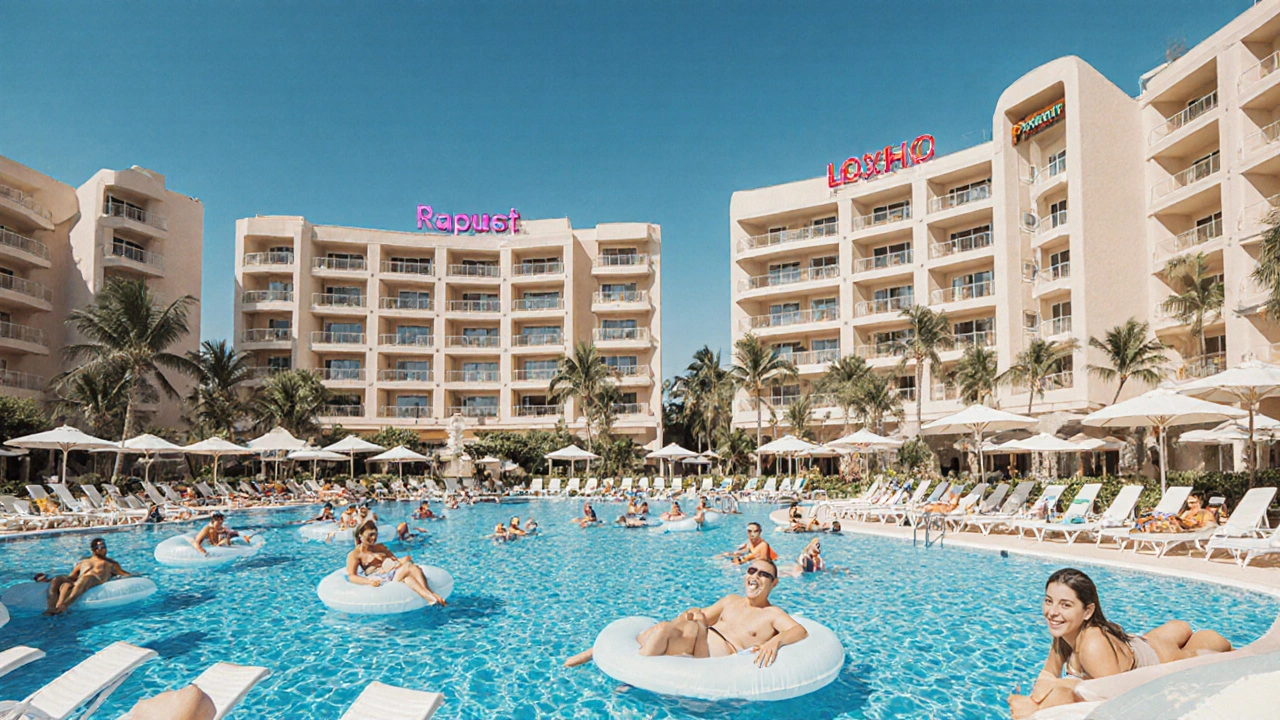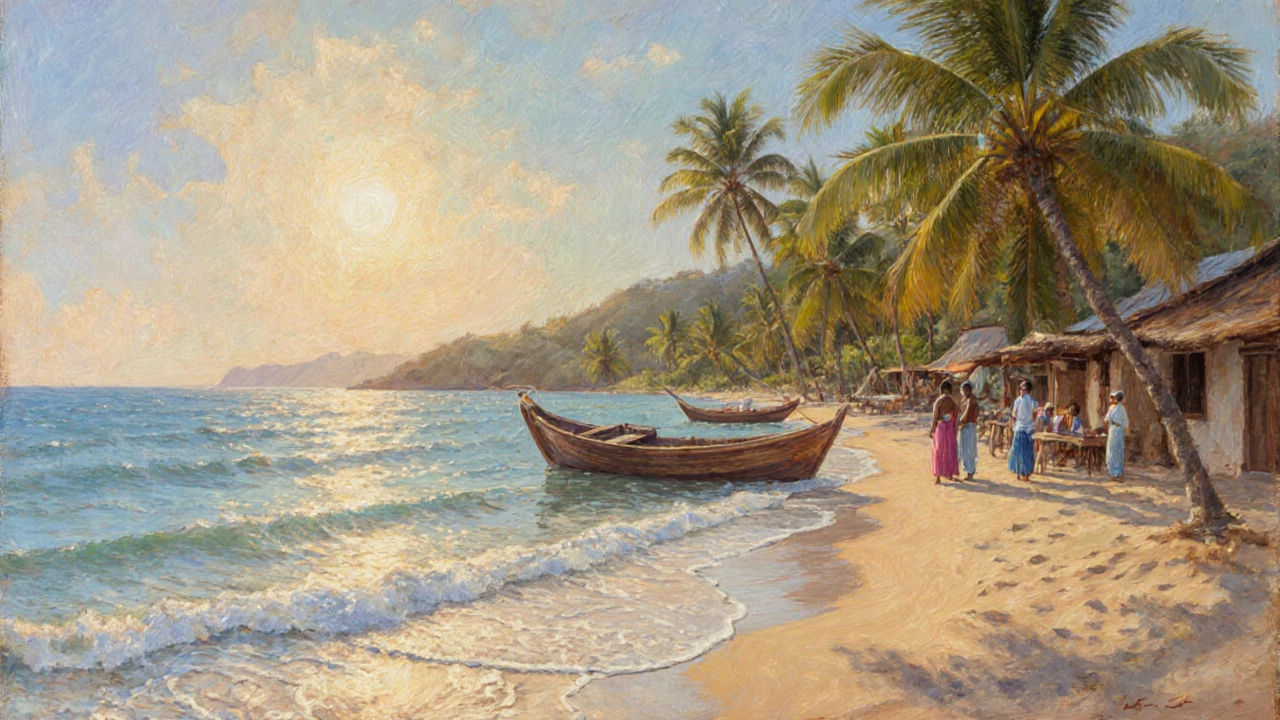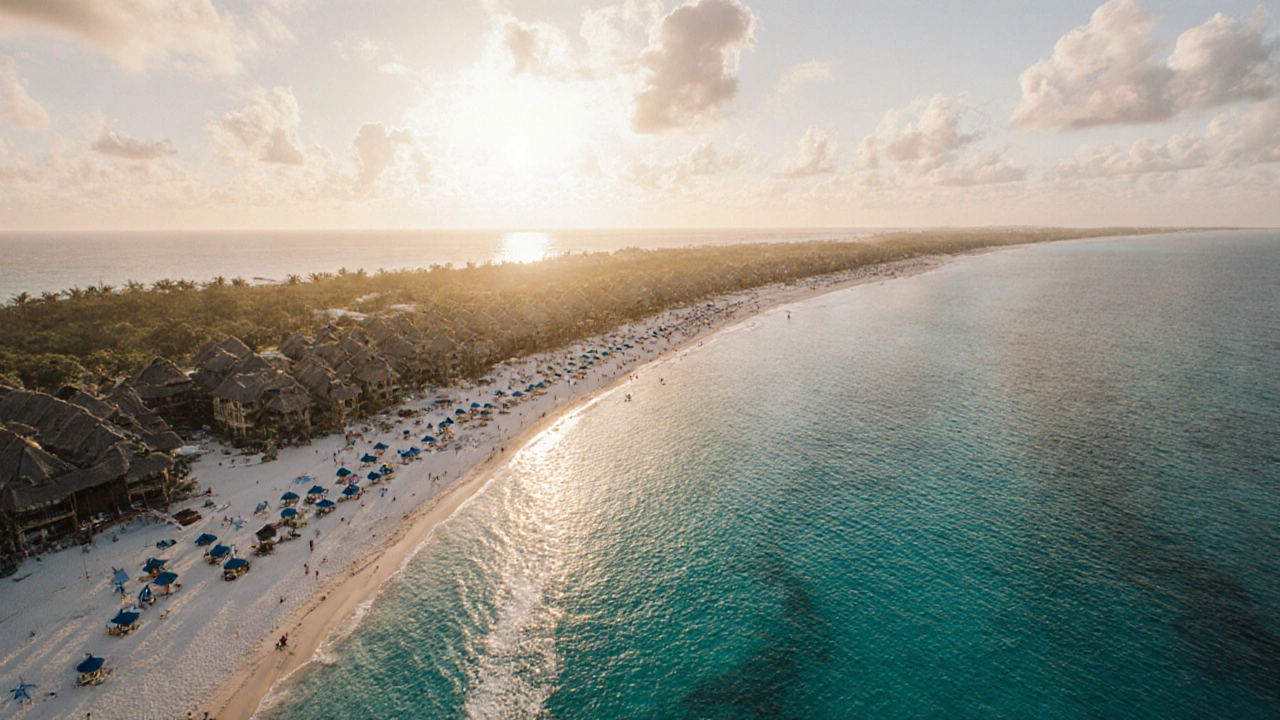Caribbean Island Value Calculator
Select your preferences and click "Find Best Match" to see recommended Caribbean islands based on your criteria.
When you picture a perfect beach getaway, turquoise water and soft sand usually come to mind. The Caribbean checks those boxes, but not every island lives up to the hype. Below we break down the islands that often disappoint travelers and explain why you might want to reroute your flight.
Key Takeaways
- Tourist‑heavy islands with overdeveloped resorts can feel artificial and pricey.
- Safety concerns, unreliable infrastructure, and limited authentic experiences are common red flags.
- Consider alternatives that offer a better balance of natural beauty, culture, and value.
Caribbean islands not worth visiting often share a few traits: crowded beaches, inflated prices, and a lack of genuine local flavor. Below we dive into each case, give concrete reasons, and suggest a better option nearby.
How We Picked the “Skip” List
Our criteria focus on three practical aspects: tourist experience quality, value for money, and safety/infrastructure reliability. We surveyed recent traveler reviews, looked at price trends on major booking sites, and checked official safety advisories. If an island scored poorly on two or more of those dimensions, it landed on the list.
Dominican Republic - The Overcrowded All‑Inclusive Trap
Dominican Republic is a West‑Indian nation that draws more than 5 million tourists each year, most of them for its massive all‑inclusive resorts. While the beaches are beautiful, the islands’ most popular resorts have become “tourist bubbles” - endless pools, pre‑cooked meals, and a limited glimpse of local culture. Prices for beachfront rooms have risen 30 % in the last three years, yet the experience feels generic. Travelers seeking authentic music, food, and community interaction often leave disappointed.
Better alternative: head to the less‑touristy Samana Peninsula or the historic town of Puerto Plata, where boutique guesthouses and local eateries preserve the island’s character.
Cuba - Restrictions and Infrastructure Headaches
Cuba is the Caribbean’s largest island, famous for vintage cars and historic architecture. Unfortunately, the island’s travel restrictions, spotty internet, and frequent power outages make it a hassle for many. Currency exchange rules can also inflate costs unexpectedly. While culture lovers may still enjoy Havana’s streets, most beach‑seeking tourists find the limited public beaches overcrowded and lacking clean facilities.
If you crave a Caribbean vibe without the bureaucratic barrier, consider the nearby Bahamas’ Out Islands, which offer similar pastel‑colored towns and uncrowded sands.
Puerto Rico - High Prices, Low Pay‑off for Beach‑Only Travelers
Puerto Rico is a U.S. territory that blends Spanish colonial charm with modern American comforts. The island’s beaches are gorgeous, but visitors often pay premium prices for food, accommodation, and rental cars. Moreover, the most popular spots (like Condado and Isla Verde) are swamped with day‑trippers, diminishing the sense of escape.
Try the island of Vieques, a short ferry ride away, for quieter coves, bioluminescent bays, and lower prices.

Jamaica - Tourist‑Heavy Resorts Mask Natural Beauty
Jamaica is celebrated for reggae music and coffee plantations. However, the island’s flagship resort areas-Montego Bay and Negril-have become densely packed with chain hotels and night‑life venues that cater more to partygoers than nature lovers. The surge in commercial development has led to higher costs and a loss of the island’s laid‑back vibe.
Swap the resort strip for the quieter town of Port Antonio. There you’ll find hidden waterfalls, secluded beaches, and a slower pace that still captures Jamaica’s spirit.
Bahamas - A Paradise for the Wealthy, Not the Budget Traveler
Bahamas is an archipelago of 700 islands famous for luxury resorts and pristine beaches. The downside? Almost every island charges a “tourist tax,” and high-end resorts dominate the market, pushing average nightly rates above $300. For budget travelers, the cost‑to‑experience ratio is poor, especially on Nassau and Paradise Island where crowds and commercialism are at a peak.
Consider the less‑touristy Exuma Cays, where you can book modest guesthouses and still enjoy crystal‑clear water without the sky‑high price tag.
Barbados - High Costs Paired with Limited Beach Variety
Barbados is an eastern Caribbean island known for its British heritage and cricket culture. The island’s western “Platinum Coast” offers immaculate beaches, but the area is heavily commercialized, and accommodation prices often exceed $250 per night during peak season. Moreover, the island’s coastline is relatively short, meaning most visitors see the same beaches repeatedly.
Instead, hop over to nearby St. Lucia’s less‑developed north‑west coast for diverse shoreline options at a friendlier price point.
Trinidad and Tobago - Safety Concerns and Urban Overwhelm
Trinidad and Tobago comprises the southernmost Caribbean islands, with Trinidad being the larger, more industrialized partner. While Tobago offers stunning beaches, the islands have been flagged by several travel advisories for higher crime rates, especially after dark. Additionally, the infrastructure on Tobago can be inconsistent-occasional power cuts and limited road maintenance affect the overall experience.
If you love Caribbean culture but want a safer, more reliable beach scene, head to the Dutch side of the Caribbean such as Curacao, which boasts better infrastructure and a lower crime index.

Comparison Table - Quick Reference
| Island | Main Issue | Suggested Alternative |
|---|---|---|
| Dominican Republic | Overcrowded all‑inclusive resorts | Samana Peninsula, Puerto Plata |
| Cuba | Travel restrictions, unreliable utilities | Bahamas Out Islands |
| Puerto Rico | High prices, crowded beaches | Vieques |
| Jamaica | Tourist‑heavy resorts, inflated costs | Port Antonio |
| Bahamas | Luxury‑only market, steep taxes | Exuma Cays |
| Barbados | High nightly rates, limited beach variety | St. Lucia (NW coast) |
| Trinidad and Tobago | Safety advisories, spotty infrastructure | Curacao |
Tips for Choosing a Caribbean Destination
- Research seasonality. Visiting during the Hurricane season (June‑November) can affect both price and safety.
- Look beyond the “most‑visited” list. Smaller islands often provide a richer cultural experience at lower cost.
- Check recent traveler reviews on platforms that verify stays (e.g., TripAdvisor, Google Maps). Pay attention to comments about cleanliness, local food, and Wi‑Fi reliability.
- Consider the mix of activities you want-snorkeling, hiking, cultural tours-and make sure the island offers them without an extra price tag.
- Budget for hidden fees such as airport taxes, resort fees, and optional excursions that can quickly inflate the bill.
Conclusion: Pick Wisely, Enjoy Fully
Not every Caribbean island lives up to the postcard view. By steering clear of the over‑commercialized or infrastructure‑challenged spots, you’ll spend your vacation money on genuine experiences instead of inflated resort fees. Use the table above as a quick reference, read up on the latest safety advisories, and you’ll find a slice of paradise that truly matches your expectations.
Frequently Asked Questions
Why are some Caribbean islands overpriced?
High demand, limited land, and a concentration of luxury resorts push prices up. Islands that rely heavily on all‑inclusive packages often add mandatory taxes and service fees, making the total cost much higher than the advertised rate.
Is it safe to travel to the Caribbean during hurricane season?
Safety varies by island. Most major destinations have robust early‑warning systems and evacuations plans, but smaller islands may lack resources. Check the official travel advisory for each island and consider travel insurance that covers weather disruptions.
How can I experience local culture without staying in a resort?
Book a boutique guesthouse or a locally‑run B&B, eat at family‑owned restaurants, and join community events or markets. Renting a car or a scooter lets you explore villages off the main tourist corridor.
What are the cheapest islands for a beach holiday?
The Dominican Republic’s less‑touristy eastern coast, the island of Dominica, and the Belize mainland (while not an island, it offers Caribbean vibes) generally provide good value for money. Off‑season travel can also shave 30‑50 % off accommodation costs.
Do I need a visa for any of these islands?
Visa requirements differ by nationality. Canadian, US, and EU citizens can usually enter most Caribbean islands visa‑free for short stays, but you should verify entry rules for Cuba and the Dominican Republic, which may need a tourist card.
